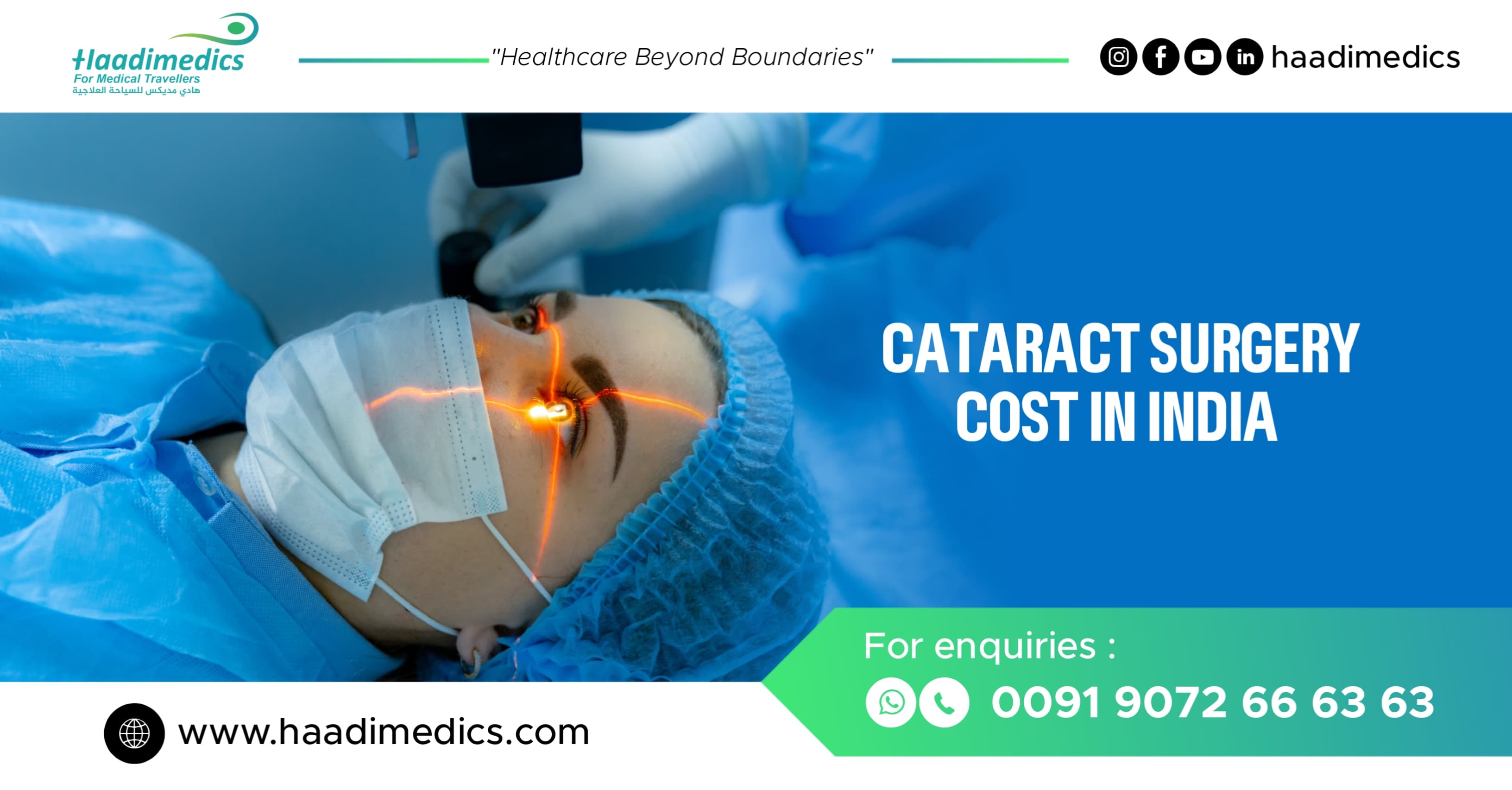India has gained recognition worldwide for its excellence in providing high-quality healthcare services at affordable prices, including cataract surgery. With a combination of advanced technology, skilled surgeons, and state-of-the-art facilities, India has become a preferred destination for patients seeking cost-effective cataract treatment.
What is Cataract Surgery?
Cataract surgery is a procedure aimed at removing the cloudy lens from the eye, which has been affected by cataracts, and replacing it with an artificial intraocular lens (IOL). Cataracts occur when the natural lens of the eye becomes cloudy, leading to blurred vision, glare, and difficulty seeing in low-light conditions.
Why is it done?
Cataract surgery is performed to restore clear vision and improve the quality of life for individuals affected by cataracts. It is typically recommended when cataracts significantly impair vision and interfere with daily activities such as reading, driving, or watching television.
Preparation for Cataract Surgery
Before undergoing cataract surgery, patients undergo a thorough eye examination to assess the severity of the cataract and determine the most suitable treatment approach. This evaluation includes measurements of the eye's curvature and length, as well as assessments of overall eye health.
Procedures Involved
During cataract surgery, the cloudy lens is removed through a small incision in the cornea using a technique called phacoemulsification. Once the cataract is removed, an artificial intraocular lens (IOL) is implanted to replace the natural lens and restore clear vision. The entire procedure is usually performed under local anesthesia and takes about 15-20 minutes per eye.
What to Expect?
Before surgery, patients receive instructions on how to prepare, including fasting requirements and medication guidelines.
During the surgery, patients may feel slight pressure or discomfort, but the procedure is generally painless.
After surgery, patients may experience temporary blurriness or irritation, but vision typically improves within a few days as the eye heals.
Different Types of Treatment
In addition to traditional cataract surgery, advanced techniques such as femtosecond laser-assisted cataract surgery (FLACS) and premium IOLs are available. FLACS offers increased precision and customization, while premium IOLs can correct astigmatism or provide multifocal vision.
Best Hospitals in India
- Bharti Eye Hospital, New Delhi
- Medanta - The Medicity, Gurgaon
- Shankar Netralaya, Chennai
- Aravind Eye Hospital, Madurai
- LV Prasad Eye Institute, Hyderabad
- Sankara Nethralaya, Chennai
- Vasan Eye Care Hospital, Trivandrum
Top Surgeons for Cataract Surgery
- Dr. Dharitri Samantaray
- Dr. Anitha Sethi
- Dr. Deependra V Singh
- Dr. Pratik Ranjan Sen
- Dr. Sunaina Arora
- Dr. Dheeraj Gupta
Top Nations in Cataract Surgery
While India has gained recognition for its excellence in cataract surgery, other countries such as the United States, Germany, Thailand, Spain and Singapore also excel in this field. However, the significantly lower cost of treatment in India, coupled with high-quality care, makes it an attractive destination for patients seeking cataract surgery.
Cost Comparison
New Delhi – USD 450
Mumbai – USD 475
Bangalore – USD 450
Hyderabad – USD 445
Chennai – USD 465
Kochi – USD 400
Turkey – USD 2000
Thailand – USD 1600
Germany – USD 1600
FAQ
1. Is cataract surgery painful?
Cataract surgery is typically not painful as numbing eye drops and anesthesia are used to ensure comfort during the procedure.
2. How long does cataract surgery take?
The actual surgical procedure usually takes about 15-20 minutes per eye, although patients may spend additional time in the operating room for pre-operative preparations.
3. How soon can I resume normal activities after cataract surgery?
Most patients can resume normal activities within a day or two after cataract surgery, although strenuous activities should be avoided for a few weeks to allow for proper healing.
4. Will I need glasses after cataract surgery?
While cataract surgery can significantly improve vision, some patients may still require glasses for certain tasks such as reading or driving, especially if they opt for monofocal IOLs.
5. Is cataract surgery covered by insurance?
In many cases, cataract surgery is covered by health insurance, although patients are advised to check with their insurance provider to confirm coverage and any out-of-pocket expenses.
6. What are the potential risks of cataract surgery?
Risks associated with cataract surgery include infection, bleeding, inflammation, and changes in intraocular pressure. However, serious complications are rare, and the vast majority of patients experience successful outcomes.
7. Can both eyes be operated on simultaneously?
While it is possible to perform cataract surgery on both eyes during the same session, some surgeons may prefer to stage the surgeries to minimize the risk of complications and ensure optimal visual outcomes.
8. How long does it take to recover from cataract surgery?
Most patients experience significant improvement in vision within a few days after cataract surgery, with full recovery typically occurring within 4-6 weeks.
9. Are there any dietary restrictions before or after cataract surgery?
Patients are generally advised to avoid eating or drinking for a few hours before cataract surgery, and to follow any post-operative instructions provided by their surgeon regarding dietary restrictions or medication usage.
10. Can cataracts come back after surgery?
Once removed, cataracts do not come back. However, some patients may develop a condition called posterior capsule opacification (PCO), where the lens capsule becomes cloudy over time. YAG laser capsulotomy is a simple laser operation that can be used to treat this.


Comments